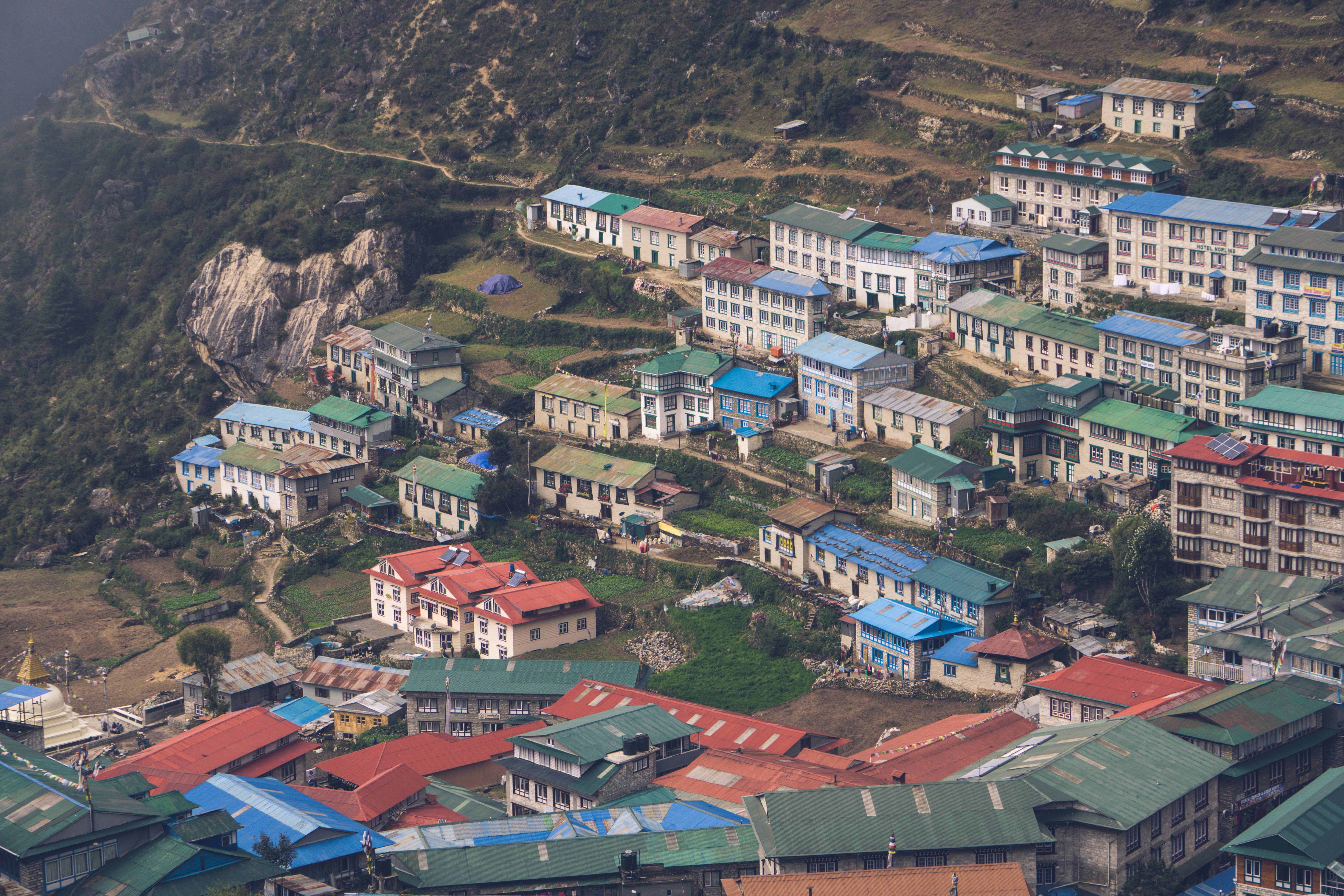
Globally, there are growing concerns regarding the adverse effects of environmental degradation that lead to climate change. The High-Level Panel on the Post-2015 development agenda found that the world’s consumption and production patterns need to be managed in a more sustainable and equitable way and that there is also a need to mobilise economic, social and environmental actions together for poverty reduction.
It has been observed that consumption in the Asian region is growing as a result of increasing economic activities. A study released by UNEP in 2013 states that the Asia Pacific region consumes more materials than the rest of the world and will face greater challenges to switch towards a green economy. Hence, there is a dire need to decouple economic activities and environmental degradation, in order to ensure an improvement in human well-being and poverty reduction.
Nepal has been experiencing rapid urban population growth and a demand for more energy as well as increased exploitation of natural resources. Nepal’s economy is largely consumptionbased, which is leading to an unsustainable use of natural resources and posing an adverse impact on the environment. For example, plain and fertile lands are now being used to build infrastructure whereas, unproductive gradient or barren land is used for cultivation. As a result, agricultural productivity has not improved.
Inadequate integration of environmental considerations in planning and the ineffective implementation of development activities can be considered as major reasons for the degradation of land and air quality, the depletion of forest and water resources and increasing waste problems.
The European Union (EU) has been assisting Nepal in alleviating poverty through various initiatives, one of which is SWITCH-Asia. This programme, launched in 2007 to promote Sustainable Consumption and Production (SCP) in Asia, offers an integrated approach to reducing poverty, economic, social, and environmental costs and strengthening economic competitiveness. In the first phase of SWITCH-Asia, more than 100 projects were funded with a total budget of around EUR 230 million.
In view of the success of this programme, SWITCH-Asia II was initiated, aiming to promote sustainable growth, economic prosperity and the development of a green economy along with encouraging climate change mitigation, ultimately contributing to poverty reduction in Asia. SWITCH-Asia II has three components - Regional Policy Advocacy (targeting policymakers), SCP Facility (general coordination of the 3 components), and Grants Projects (testing innovative approaches to SCP).
Nepal benefits from a number of SWITCH-Asia funded grant projects. The call for proposals 2018 has just been completed and it is expected that additional projects will be funded for implementation in Nepal. However, the impact needs to be maximised in terms of implementing both regional policy advocacy and support facility components in order to strengthen dialogue on SCP policies at the national, sub-regional and regional levels as well as facilitating collaboration between all three components.
Nepal aims to become a middle-income country by 2030, part of which included adopting low carbon green economic development policies (the draft has been already prepared). Therefore, SWITCH-Asia could be an effective tool in assisting the Nepalese government's efforts with the necessary technical assistance to further mainstream SCP practices in order to protect the environment and further depletion of natural resources whilst progressing on low carbon economic development.
The Multi-stakeholder Dialogue on Sustainable Consumption and Production was organised by the Government of Nepal and the European Union under the EU’s SWITCH Asia Programme Support Facility on 25 October 2018 in Kathmandu, Nepal. High-level officials of the Government of Nepal noted the SWITCH-Asia programme as a connector between strategies and actions promoting the healthy life of the people of Nepal while providing the means to increase production, optimise consumption, contributing to ensure food security, and acting to combat the adverse effects of climate change.
One of the important outcomes of the dialogue was the identification of concrete steps/actions needed to achieve SCP goals by 2030 and the processes needed for a relevant SCP strategy and action plan. The event was successful in bringing voices together and outlining SCP priorities that will drive policy and actions. The SWITCH-Asia programme will continue to work with the government and other stakeholders for Nepal’s shift towards SCP practices, promoting a green economy and mitigating climate change.
Author
Dr. Ranjan Prakash Shrestha, Senior Programme Manager, European Union Delegation to Nepal.
Disclaimer: The content of this article does not reflect the official opinion of the European Union. Responsibility for the information and views expressed in the article lies entirely with the author.


